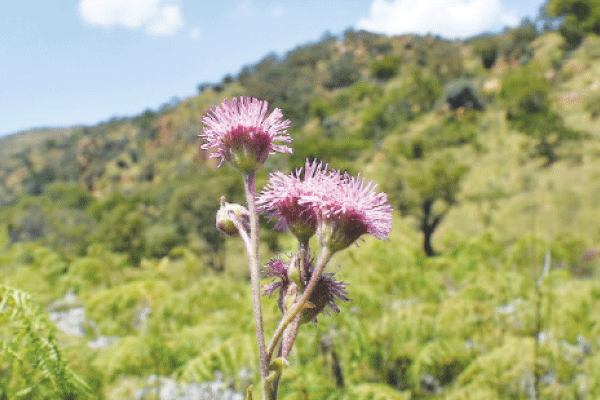

Uprooting invasive alien plants
Rustenburg – Invasive alien plants introduced to South Africa from other countries often threaten biological diversity and lead to environmental harm if left to thrive.
Without natural enemies, these plants reproduce and spread rapidly, taking valuable water and space from indigenous plants and causing extensive damage to the environment.
Mountain Club of South Africa (MCSA) volunteers from Magaliesberg see the removal of these invasive plants as an important part of their conservation efforts. The MCSA is more than 100 years old and is one of the oldest mountaineering clubs in the world.
Club members, often accompanied by friends and relatives take part in the conservation of mountain areas through fire management, erosion control on roads and paths, weeding or hacking of invasive plants, removal of snares as well as funding research on conservation-related initiatives.
MCSA climbing convenor Magaliesberg section Roger Diamond said each weekend, volunteers spend time removing invasive plants along various trails.They hack and uproot the weeds for many hours at Castle Gorge and other areas along the Magaliesberg.
Some of the invasive plants common in the Magaliesberg area include syringa (Melia azedarach), lantana (Lantana camara), senna (Senna occidentalis) pompom (Eupatorium macrocephalum), crofton weed (Ageratina Adenophora), inkberry (Cestrum laevigatum) as well as prickly pear cactus (Opuntia ficus-indica).
“We enjoy spending time in healthy natural environments, so keeping them free of invasive alien plants is imperative to preserving our heritage and enabling our members and the public to enjoy nature at its best,” Diamond said.
He added that invasive alien plants bring with them an increase in the risk of fire and higher rates of water usage which leads to clogging and damage of waterways. These unwanted plants also transform the indigenous veld into an impenetrable thicket that has no ecological value.
“In other words, the local wildlife derive no benefit from these plants and so the ecosystem is gradually destroyed as the invaders multiply. Without losing sight of the seriousness of the work we do, we have a lot of fun, explore hidden parts of the Magaliesberg that hikers and climbers never see and the team spirit on a weeding trip is the best,” Diamond said.
“Getting sweaty, scratched and burrowing deep into a kloof on a hot day is rewarded by being in nature so fully with a keen and fun bunch of weeders,” he concluded.


#FosteringASenseOfCommunity








